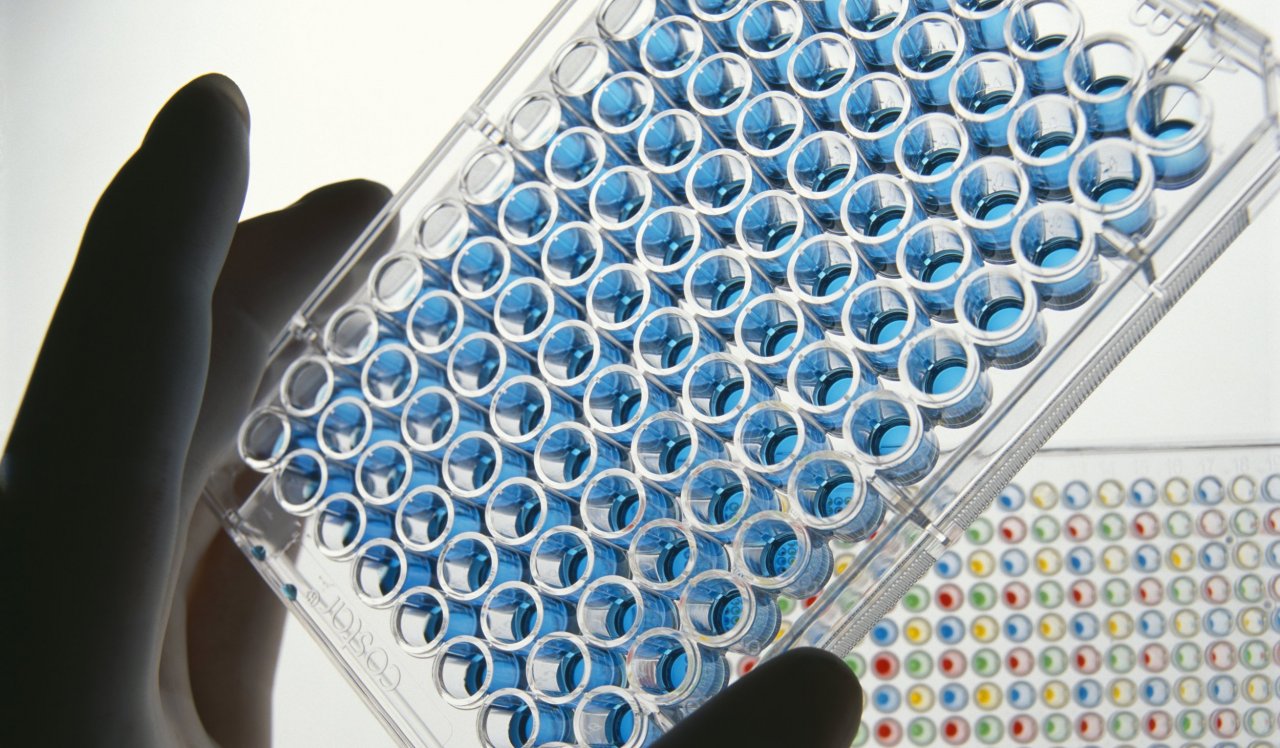Our bodies are like huge Motel 6s, hosting hundreds of thousands of microorganisms. Many are bacteria, making up the "human microbiota" that resides all over the body, from the deep layers of skin to the gastrointestinal tract. Then there are the viruses. Sometimes they make you ill; other times the body's immune system knocks them out and they disappear before you or your doctor know it. Some viruses lurk in hidden corners, unrecognizable until they attack.
Both the destroyed and the latent viruses leave permanent marks in the body: Whenever you get infected with a virus, the immune system produces antibodies to attack the virus. They remain in your blood—often for months, years and some even for your entire life.
Recently, a research team including scientists from Harvard, MIT and the Howard Hughes Medical Institute designed a method to find every last one of these antibodies. It's called VirScan, and it can identify your entire viral history with just one drop of blood.
The researchers first took harmless viruses and engineered them to carry bits of (also innocuous) proteins from human viruses on their surfaces. Using a huge data set, including proteins of over 1,000 strains of the 206 known human viruses, they mixed a test patient's drop of blood into the engineered viruses. The antibodies in the blood, poised to attack the invader, immediately detected and became attracted to the protein fragments, thus revealing all the viruses to which the patient had been exposed.
To test out the new tool, the team screened 569 patients from all over the world. They found that on average, people had been exposed to about 10 viral species. Several people, however, had been exposed to over 84 viral species. The results of the project were published June 5 in the journal Science.
It's neat to be able to see your viral history laid out on paper, but researchers say the new screening test could also lead to earlier detection of viruses that can cause irreparable damage and often are covert for many years—like hepatitis C and HIV. VirScan should make viral testing cheap and efficient: Instead of having to test specifically for one virus, doctors could do an entire slew of tests at once, for about $25.
"Ideally this will be a standard thing where you go to the doctor once a year for a checkup," says Stephen Elledge, lead author of the study and a professor of genetics at Harvard Medical School. "There are literally millions of people walking around with unnoticed hepatitis C or HIV infections. Unless the doctor suspects you have HIV, they won't even do a test for it."
He adds that a test like VirScan would also churn up new information about some of the most mysterious and debilitating diseases we face today. "A lot of people think that certain diseases like [multiple sclerosis] or Type 2 diabetes, or maybe even chronic fatigue syndrome, may have a viral origin," Elledge says. Understanding the broader viral backdrop in human populations could help doctors finally confirm those connections and, eventually, tailor more effective treatments.












